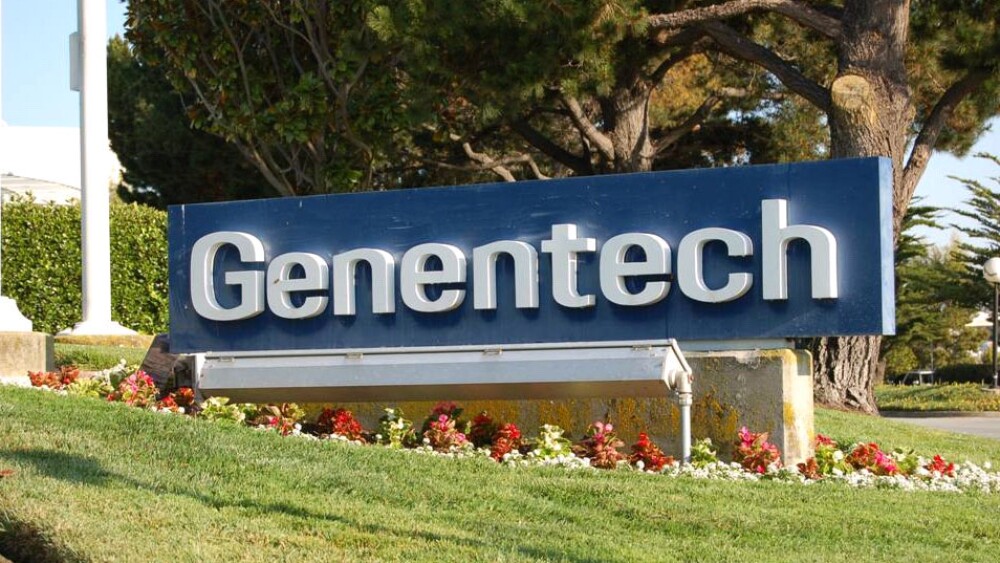May 10, 2017
By Mark Terry, BioSpace.com Breaking News Staff
Genentech , a member of the Roche Group , announced that Tecentriq (atezolizumab) failed to meet its primary endpoint in its Phase III IMvigor211 clinical trial.
Tecentriq, a monoclonal antibody that binds with PD-L1, is already approved for certain types of bladder and urinary tract cancer called urothelial carcinoma. In this trial, it was being evaluated in patients with locally advanced or metastatic urothelial cancer (mUC) whose disease progressed during or after treatment with a platinum-based chemotherapy. The drug failed to meet the primary endpoint of overall survival (OS) compared to chemotherapy.
“While these results are not what we had expected, we believe that Tecentriq will continue to play an important role in the treatment of people with advanced bladder cancer,” said Sandra Horning, Genentech’s chief medical officer and head of Global Product Development, in a statement. “We are committed to helping people with advanced bladder cancer and will discuss these data with health authorities.”
These results were a surprise for most everybody, and it seems that Roche is surprised as well, noting that the chemotherapy wing of the trial had an unusually high response that they weren’t expecting. It puts the company on the spot, because the U.S. Food and Drug Administration (FDA) had granted it accelerated approval based on more positive results from the smaller Phase II IMvigor 210 study. So it’s possible the FDA could rescind the accelerated approval.
John Carroll, writing for Endpoints News, says, “Now the FDA will have to review whether the drug should stay on the market, after Roche had already launched an intense marketing effort on bladder cancer that quickly pushed sales past the $100 million mark last quarter. Analysts have widely tapped this therapy as a future blockbuster, worth billions of dollars.”
Roche dropped at the news, going from $273 at the end of trade on Tuesday, May 9 to a current price of $267.20.
Seamus Fernandez, an analyst with Leerink, wrote in a note to investors, “This comes as a surprise to us, considering Merck ’s Keytruda (pembrolizumab; anti-PD-1) showed an OS benefit in its pivotal Keynote-045 trial. As IMvigor211 served as a confirmatory study for Tecentriq’s accelerated approval for second-line (2L) bladder cancer, we assume that this will put this indication at risk of being removed from the label. However, the drug also has accelerated approval for first-line (1L) patients who are ineligible for cisplatin based chemotherapy and the confirmatory trial for this population (IMvigor130) is ongoing, with results expected in 2019.”
Tecentriq is the third PD-1/PD-L1 drug to hit the market, the first two being Merck’s Keytruda and Bristol-Myers Squibb ’s Opdivo. There are currently five on the market, including Pfizer and Merck KgaA ’s Bavencio (avelumab) and AstraZeneca (AZN)’s Imfinzi (durvalumab). Bavencio was just approved on Tuesday and is conditional on future confirmatory trials.
Bavencio will be priced at about $13,000 per month, based on the average patient. That’s slightly more expensive than Tecentriq and Opdivo, which are both priced at about $12,500 per month. Imfinzi is also priced at $13,000.
Of today’s announcement, David Evans, an analyst with Kepler Cheuvreux wrote in a note to investors, “This puts the existing U.S. bladder cancer approval in serious doubt, and will also, of course, raise market concerns about Tecentriq’s efficacy in other cancer types.”





